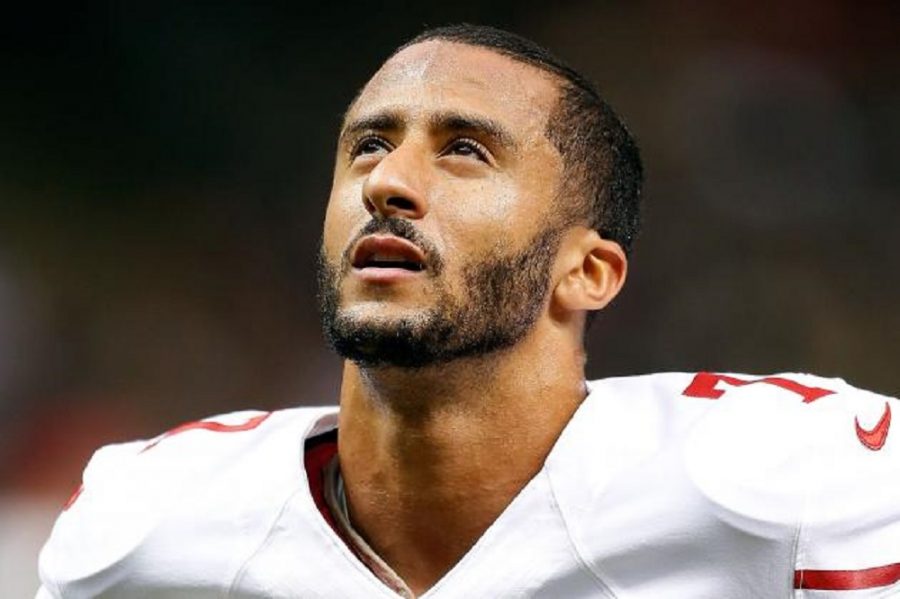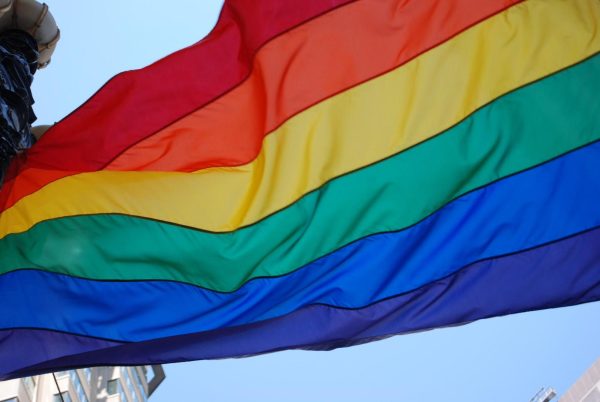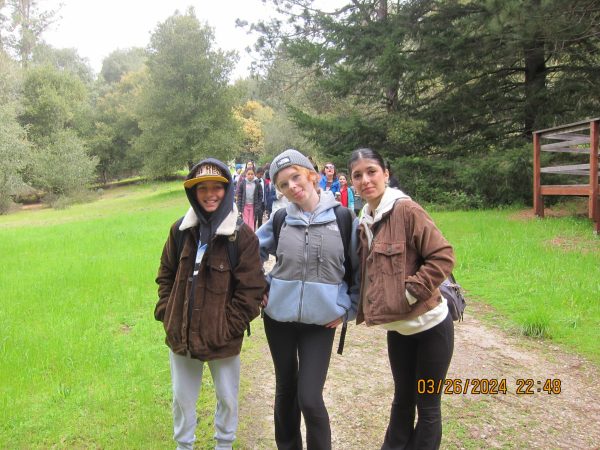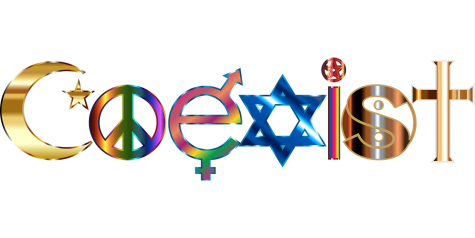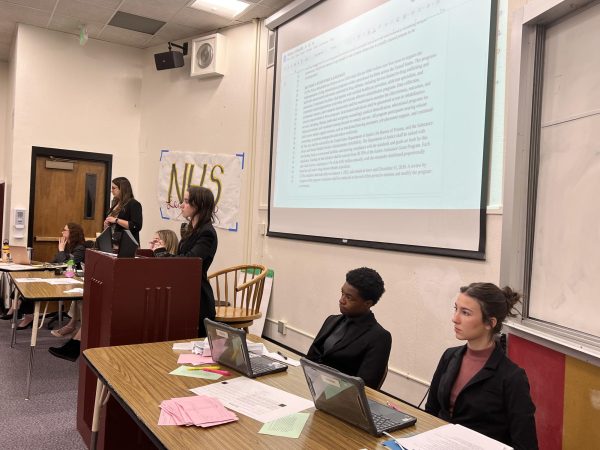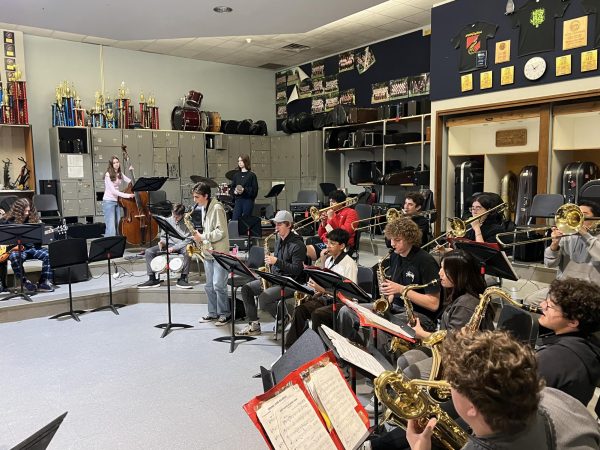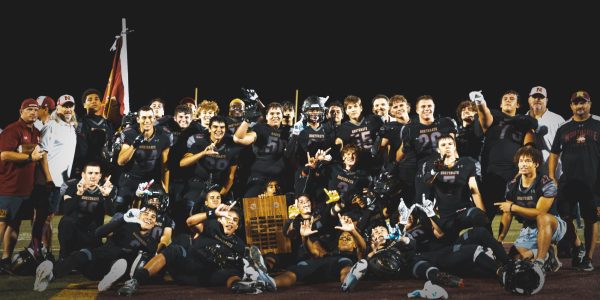Colin Kaepernick controversy and what it means to be an American
Up until a month ago, Colin Kaepernick had been best known for his participation as a quarterback on the 49ers. However, after a football game on Aug. 23, Kaepernick stole headlines when he refused to stand for the national anthem, and opted instead, to take a knee.
Kaepernick told reporters after the game, “I am not going to stand up to show pride in a flag for a country that oppresses black people and people of color. To me, this is bigger than football and it would be selfish on my part to look the other way. There are bodies in the street and people getting paid leave and getting away with murder.”
When I first heard his respectful statement on the matter, I agreed with his ideas immediately and was pleased that Kaepernick had utilized his influential, privileged position to convey an important, difficult message. Many athletes waste their platforms by neglecting them as a way to raise awareness about prevalent, pressing issues. However, a large portion of the general public did not share my feeling. For speaking his mind, Kaepernick has been painted by many as spoiled, ungrateful, disgraceful; he has even received numerous death threats.
A study conducted by Yahoo Sports revealed that the majority of Americans opposed Kaepernick’s protest, 49%, while 32% supported it, and the rest were indifferent or uninformed. And perhaps the fact that so many were so personally insulted and enraged is exactly why this issue is so valuable. Why were some so angered by what was essentially a quiet protest fighting for equal rights?
Many believed that Kaepernick’s boycott insulted policemen and service people. Sports commentator Boomer Esiason remarked: “I find it completely disrespectful, not only to the military, but to the men and women who wear the blue uniform and protect our cities everyday.” However, what Esiason fails to see is that Kaepernick is not trying to disrespect our veterans, he is protesting for the same rights that police and service people sacrifice their lives to protect – liberty, equality, and the reality of the American dream. Surely our brave, noble service people would want their beloved America to be one that offers the same safety and opportunities to all.
Kaepernick’s protest was also notable in that it provoked a debate regarding issues of freedom of speech, police brutality, and American exceptionalism.
One of the most famous proponents of American exceptionalism is controversial presidential candidate Donald Trump who recently declared, “We will stop apologizing for America, and we will start celebrating America.” But herein lies the problem: why should Kaepernick or anyone else celebrate a country whose law force has killed so many innocent African Americans, a country that perpetuates the institutionalized discrimination and oppression of a minority group?
Another famous politician, Ted Cruz, in response to President Obama’s moving speech on police brutality after Kaepernick’s sit, remarked, “I gotta say, I was disappointed to see President Obama stand with Kaepernick and say, ‘that’s right, disrespect the flag,’” Cruz said, “That’s not the job of the president. The president should be standing up for America. The president should be encouraging every American to honor the flag that so many have bled and died for and to honor the freedom that it stands for.” It seems that even politicians, who are supposed to be reasonable representatives of the American population, prefer to believe in the delusion of a great and free America. Cruz’s insistence that the president should “honor the freedom that it (the flag) stands for” reveals the precise fallacy of his whole argument. The flag merely stands for freedom. Cruz does not seem to acknowledge or care that the freedom he praises is not universal. If African Americans fear for the lives of themselves and their loved ones, if they are persecuted based on the color of their skin, if each day, the American dream seems more and more like a nightmare, they are not free, and American freedom does not really exist. For victims of police brutality and their families, for Eric Garner, for Tamir Rice, for Alton Sterling, for those yet to come, America is not a haven of equality and justice.
I am aware that this situation is far from black and white, and that police officers have a right and a responsibility to defend themselves, but reflecting on the countless names of African American victims killed by police brutality, it is difficult not to be deeply saddened and frustrated by the loss of innocent lives due to fear, prejudice, or simply the impulse to shoot before asking questions–by the lack of justice for American citizens.
Being American does not mean blindly revering our nation and pretending that our melting pot has mixed together seamlessly; this only contributes to the ignorance and prejudice that has caused these issues in the first place. It means acknowledging what is bad, and working to change it. Ideals of American liberty and equality must be left behind if we want the opportunity to make the American dream a reality. Even if some disapprove of the means used to enact Kaepernick’s message, at least he has extended a conversation that desperately needs to be discussed to a wider community. At least he is encouraging people to think, to talk, to debate, to care about real problems. As Americans, and especially as youth, we need to realize that the time for change is now, as we possess the power to improve our nation.

